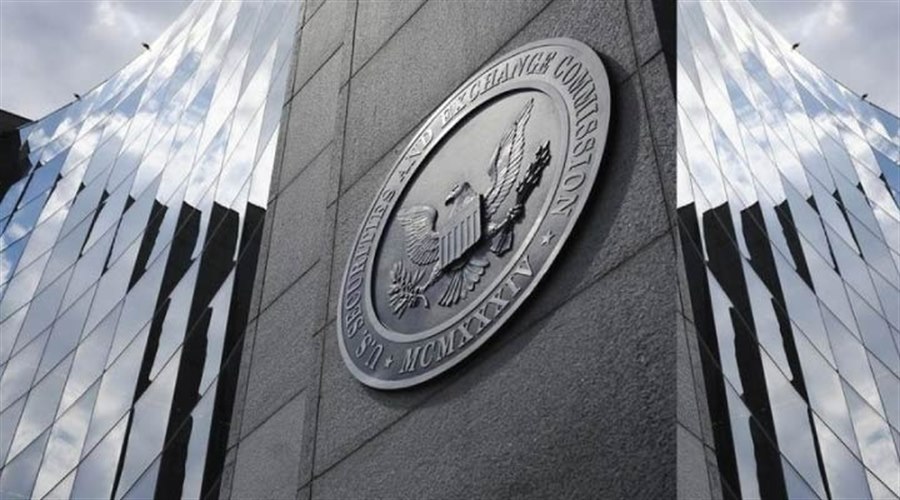
The US Securities and Exchange Commission (SEC) obtained a temporary asset freeze order against Utah-based crypto business Digital Licensing Inc., operating as DEBT Box, alleging a $50 million crypto fraud. The company, its four principals – Jason Anderson, his brother Jacob Anderson, Schad Brannon, and Roydon Nelsonand – and 13 other defendants face restraining orders and other emergency relief.
Announced yesterday (Thursday), the crypto company allegedly sold crypto assets, which can be classified as unregistered securities, to hundreds of US investors, raising about $50 million. It also sold “unspecified amounts” of Bitcoin and Ether.
According to the SEC, the defendants have been selling unregistered securities, called “node licenses,” since March 2021, and the fraudulent scheme was ongoing. They promoted the scheme with online videos, on social media, and also at investor events, promising exorbitant gains as the “node licenses would generate various crypto asset tokens through crypto mining activity,” and the revenue generated in other sectors would drive the value of the DEBT Box tokens.
A Fake Scheme
However, the SEC pointed out that the node licenses were a “sham” and that the company fraudulently created the token supply of each DEBT Box token with codes in the blockchain. The regulator also found that DEBT Box, its principals, and three other defendants presented false revenues to the investors to drive up the value of the tokens.
“We allege that DEBT Box and its principals lied to investors about virtually every material aspect of their unregistered offering of securities, including by falsely stating that they were engaged in crypto asset mining,” said Tracy Combs, Director of the SEC’s Salt Lake Regional Office. “We filed this emergency action to protect the victims of the defendants’ unlawful actions and stop further harm.”
With the enforcement action, the US regulator seeks permanent injunctive relief, the return of alleged ill-gotten gains, and civil penalties.
The US Securities and Exchange Commission (SEC) obtained a temporary asset freeze order against Utah-based crypto business Digital Licensing Inc., operating as DEBT Box, alleging a $50 million crypto fraud. The company, its four principals – Jason Anderson, his brother Jacob Anderson, Schad Brannon, and Roydon Nelsonand – and 13 other defendants face restraining orders and other emergency relief.
Announced yesterday (Thursday), the crypto company allegedly sold crypto assets, which can be classified as unregistered securities, to hundreds of US investors, raising about $50 million. It also sold “unspecified amounts” of Bitcoin and Ether.
According to the SEC, the defendants have been selling unregistered securities, called “node licenses,” since March 2021, and the fraudulent scheme was ongoing. They promoted the scheme with online videos, on social media, and also at investor events, promising exorbitant gains as the “node licenses would generate various crypto asset tokens through crypto mining activity,” and the revenue generated in other sectors would drive the value of the DEBT Box tokens.
A Fake Scheme
However, the SEC pointed out that the node licenses were a “sham” and that the company fraudulently created the token supply of each DEBT Box token with codes in the blockchain. The regulator also found that DEBT Box, its principals, and three other defendants presented false revenues to the investors to drive up the value of the tokens.
“We allege that DEBT Box and its principals lied to investors about virtually every material aspect of their unregistered offering of securities, including by falsely stating that they were engaged in crypto asset mining,” said Tracy Combs, Director of the SEC’s Salt Lake Regional Office. “We filed this emergency action to protect the victims of the defendants’ unlawful actions and stop further harm.”
With the enforcement action, the US regulator seeks permanent injunctive relief, the return of alleged ill-gotten gains, and civil penalties.
- SEO Powered Content & PR Distribution. Get Amplified Today.
- PlatoData.Network Vertical Generative Ai. Empower Yourself. Access Here.
- PlatoAiStream. Web3 Intelligence. Knowledge Amplified. Access Here.
- PlatoESG. Automotive / EVs, Carbon, CleanTech, Energy, Environment, Solar, Waste Management. Access Here.
- BlockOffsets. Modernizing Environmental Offset Ownership. Access Here.
- Source: https://www.financemagnates.com//forex/sec-freezes-assets-of-50-million-crypto-scheme/
- $UP
- 12
- 12 months
- 13
- 2021
- 66
- a
- About
- Action
- actions
- activity
- against
- Alibaba
- Alibaba Cloud
- alleged
- allegedly
- also
- and
- anderson
- AS
- aspect
- asset
- Assets
- At
- BE
- been
- Bitcoin
- blockchain
- Box
- business
- by
- called
- CAN
- classified
- click
- Cloud
- cloud computing
- Codes
- company
- computing
- created
- crypto
- crypto asset
- crypto business
- crypto company
- crypto mining
- crypto-assets
- cutting-edge
- Debt
- defendants
- digital
- Director
- drive
- each
- emergency
- enforcement
- engaged
- enjoy
- enterprise-grade
- Ether
- events
- Every
- exchange
- Face
- fake
- false
- filed
- For
- found
- four
- fraudulent
- Free
- Freeze
- further
- Gains
- generate
- generated
- get
- harm
- Have
- his
- HTTPS
- Hundreds
- in
- In other
- Inc.
- Including
- investor
- Investors
- IT
- ITS
- jpg
- lake
- licenses
- Licensing
- March
- material
- Media
- million
- Mining
- months
- more
- node
- obtained
- of
- offering
- Office
- on
- ongoing
- online
- operating
- order
- orders
- Other
- out
- permanent
- plato
- Plato Data Intelligence
- PlatoData
- presented
- principals
- Products
- promising
- Promoted
- protect
- raising
- regional
- regulator
- relief
- return
- revenue
- revenues
- Said
- salt
- scheme
- SEC
- Sectors
- Securities
- Seeks
- Selling
- Services
- since
- Social
- social media
- sold
- start
- stating
- Stop
- supply
- temporary
- that
- The
- their
- they
- this
- three
- Through
- thursday
- to
- token
- token supply
- Tokens
- unregistered
- unregistered securities
- us
- us regulator
- value
- various
- victims
- Videos
- virtually
- was
- were
- which
- with
- would
- yesterday
- zephyrnet












